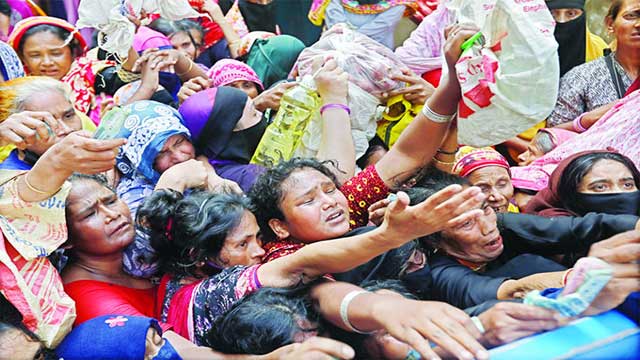No matter how hard Md Shaon, a day labourer, and his wife, a domestic help, work, their attempts fall short against the skyrocketing price to make ends meet for their family of five.
"Name any item -- rice, oil, vegetable -- they are getting costlier," said a crestfallen Shaon.
While Shaon is struggling to keep his head above water, he came to know that a hike in house rent is coming into effect from June.
"We don't know how we would survive in this situation," he added.
Shaon's concern is shared by a good number of people, especially the fixed income group and those at the lower rung of the society.
The prices of oil, onion, potato, beef, mutton, chicken, flour, cardamom and sugar have increased within a week, according to the Trading Corporation of Bangladesh.
The logical price chart of the Department of Agriculture Marketing shows that the average prices of 39 daily items have shot up almost 17 percent from last year.
However, there are instances where the government rate is not reflected at the retail level, leading to long queues in front of the open market sales trucks.
One such long line was found in front of a truck in the Motijheel's AGB Colony area where over a hundred people were waiting to buy essentials.
Over at Kawran Bazar, Dhaka's wholesale hub, Monir Hossain, a resident of Moghbazar's Pearabag, was hoping to buy loose soybean oil at a low price but had to make do with palm oil at Tk 160 a kg.
"I know that the price of per kg palm oil is Tk 133 --I was told it was an old price," he said.
The hike in soybean oil price has also had an impact on mustard oil as people are buying it as an alternative.
Within 10 days, the price of mustard oil (general quality) shot up from Tk 186 a litre to Tk 250. Last year, the price of mustard of the same quality was Tk 140.
Onion, which sold at Tk 40 per kg last week, now costs about Tk 70 though this is the harvesting season of the tuber.





